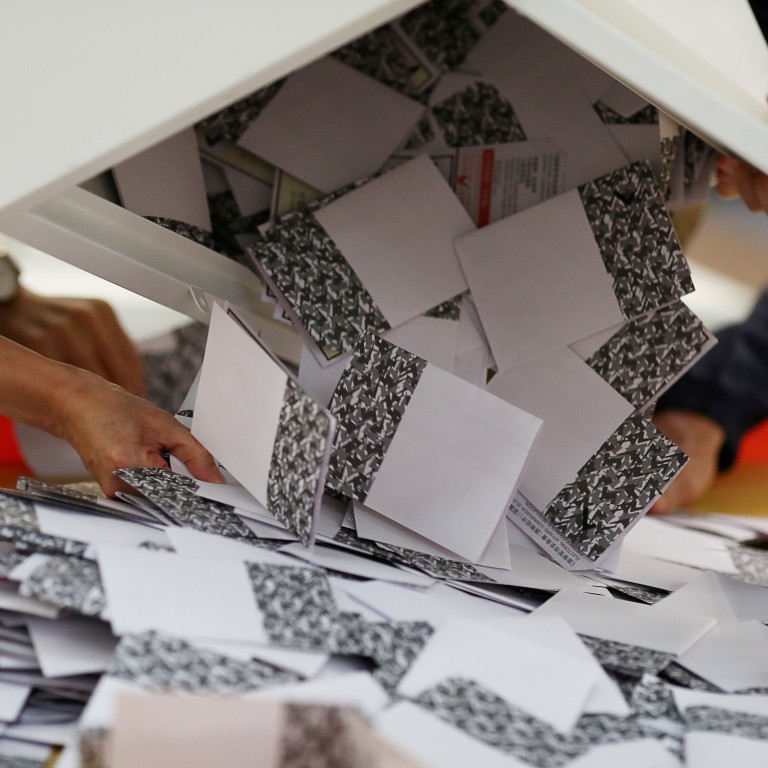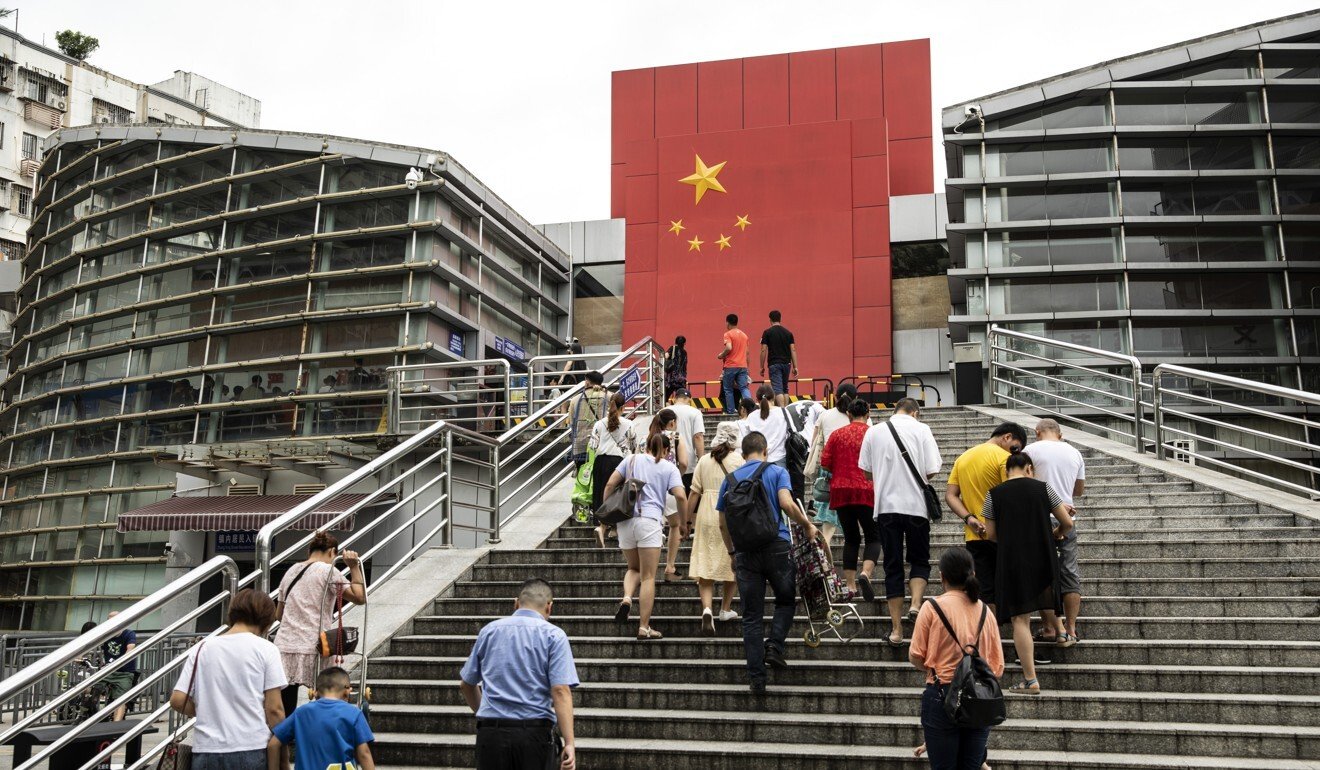
Carrie Lam expected to lay out plan to expand voting for Hongkongers on mainland China in next week’s policy address
- The plan would amend election laws to establish polling stations in mainland cities where the Hong Kong government has a presence, according to a source
- One prominent opposition member, meanwhile, has vowed to try to block the amendments ‘by all means’
Hong Kong leader Carrie Lam Cheng Yuet-ngor is expected to unveil in her fourth policy blueprint next Wednesday a plan to amend election laws to allow Hongkongers living in the Greater Bay area, as well as the rest of the mainland, to cast ballots in the city’s elections.
But opposition lawmakers warned the move would undermine the fairness and integrity of the vote, and vowed to block the passage of the amendment “by all means”.
Under the plan, Hong Kong permanent residents living on the mainland would be allowed to cast ballots in polling stations set up at the city government’s offices there, without having to travel back to the city.
Debate over proposal to allow voting in mainland China, with critics raising fears of fraud
“The government needs to take into account technical issues like manpower when it decides the number of polling stations to be set up in mainland offices,” the source said. “The Hong Kong government’s offices in Beijing, Guangzhou and Shanghai are likely to be the locations where the first batch of polling stations on the mainland will be set up.”
The Hong Kong government has offices in five mainland cities – Beijing, Shanghai, Guangzhou, Wuhan and Chengdu.
The relaxation of voting rules would be more aggressive than what the chief executive and the pro-establishment camp have been advocating in recent months – namely, setting up polling stations only in mainland cities within the Greater Bay Area in Guangdong Province.
The decision drew accusations of ulterior motives from the opposition, who had expected to make gains in the polls, particularly after the government announced its mass coronavirus testing scheme, which involved residents lining up en masse to give samples much as they would have to vote.
Announcing the delay, Lam noted the voting rights of Hongkongers in the Greater Bay Area development plan could be compromised due to border restrictions imposed to combat the pandemic.

Lam said the following day that the government needed to review existing arrangements to allow residents staying outside the city to vote in the local elections, and suggested having polling stations in the Greater Bay Area.
According to census statistics, 541,900 Hong Kong residents were living in Guangdong as of the middle of last year.
The exact number of eligible voters among them remains unclear, but Ben Chan Han-pan, a lawmaker from the pro-establishment Democratic Alliance for the Betterment and Progress of Hong Kong, put the figure at about 200,000.
There are no official statistics on the number of Hongkongers living in the rest of the mainland.
The source familiar with the government’s thinking said the planned amendment to the electoral law was aimed at enabling the Registration and Electoral Office, which was responsible for conducting elections in Hong Kong, to set up polling stations on the mainland.
“The amendment would not change the eligibility of voters,” the source said.
The current electoral rule specifies that eligible voters must “ordinarily reside in Hong Kong”.
Legco term extension breathes new life into four Hong Kong bills
A spokesman for the Constitutional and Mainland Affairs Bureau said on Friday the government would proactively improve the current electoral arrangements and implement enhancement measures at an appropriate time.
Wu Chi-wai, Democratic Party chairman and the convenor of the opposition camp, said the amendments were tailor-made for the pro-establishment camp.
“The government postponed the Legco election citing the risk brought by the pandemic. Now it changes the rules to ensure the pro-establishment camp wins the election,” he said.
He warned the amendment would undermine the credibility of Hong Kong’s elections because the lack of scrutiny across the border would allow for more electoral irregularities.
“We will block and delay the passage of the amendment bill by all means, including filibustering over the bill,” Wu said.

